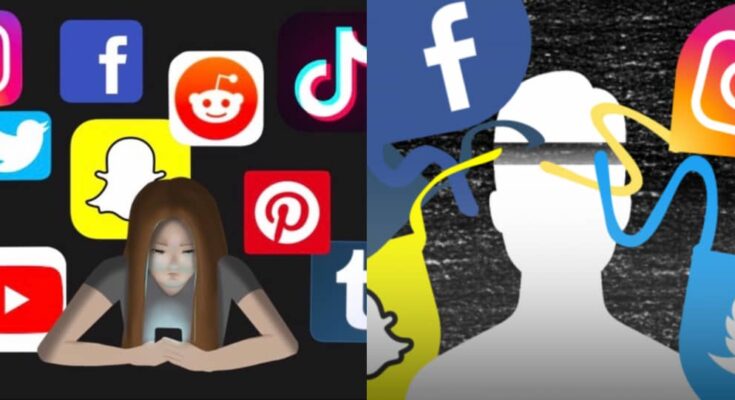In today’s digitally connected world, social media has become an integral part of our daily lives. It enables us to connect with friends and family, stay informed about current events, and share our experiences.
However, the pervasive use of social media also raises concerns about its impact on mental health. This exclusive article will delve into the complex relationship between social media and mental health, providing insights from experts in the field and offering practical coping strategies for individuals seeking to maintain their well-being in the digital age.
The Impact of Social Media on Mental Health
Social Comparison and Self-esteem
One of the prominent ways in which social media can affect mental health is through social comparison. People often present the best aspects of their lives on platforms like Facebook, Instagram, and Twitter, creating a skewed perception of reality.
Dr. Sarah Smith, a clinical psychologist, notes that constant exposure to seemingly perfect lives can lead to feelings of inadequacy and lower self-esteem among users, especially when they compare their lives to others’ curated online personas.
Fear of Missing Out (FOMO)
The Fear of Missing Out, or FOMO, is a phenomenon that can exacerbate the negative impact of social media.
Dr. John Rogers, a social psychologist, explains that FOMO occurs when individuals feel anxious or left out when they see their friends or acquaintances participating in exciting events or experiences that they are not a part of.
This fear can lead to heightened stress and a sense of isolation, negatively affecting mental health.
Cyberbullying
Social media can also be a breeding ground for cyberbullying, which can severely harm an individual’s mental well-being. Cyberbullying involves using digital platforms to harass, threaten, or demean others. Dr. Emily Harris, a child psychologist, warns that victims of cyberbullying may experience anxiety, depression, and a sense of powerlessness.
Sleep Disruption
The addictive nature of social media can interfere with sleep patterns, further impacting mental health. Dr. Michael Adams, a sleep specialist, explains that excessive screen time, especially before bedtime, can disrupt sleep by inhibiting the production of melatonin, a hormone necessary for restful sleep.
Poor sleep quality is directly linked to mental health problems, including mood disorders and cognitive impairment.
Information Overload
The constant flow of information on social media platforms can lead to information overload, causing stress and anxiety. Dr. Lisa Taylor, a psychiatrist, points out that individuals can become overwhelmed with the sheer volume of content, leading to feelings of inadequacy and anxiety about staying updated with current events or trends.
Coping Strategies for Maintaining Mental Health
Mindful Consumption
Experts emphasize the importance of mindful consumption of social media. Dr Smith recommends consciously curating your online feed by following accounts that promote positivity, self-acceptance, and inspiration rather than those that foster comparison and negativity. Unfollow or mute accounts that consistently make you feel down about yourself.
Set Boundaries
Setting clear boundaries for social media use is essential. Dr Rogers suggests designating specific times for checking your social media accounts and sticking to those time limits. Avoiding screens at least an hour before bedtime can help improve sleep quality.
Digital Detox
Taking regular breaks from social media, known as a “digital detox,” can be incredibly beneficial. Dr. Harris recommends scheduling periods when you disconnect from your online world and engage in offline activities. This break allows you to relax and recharge mentally.
Practice Self-Compassion
Cultivating self-compassion is crucial for protecting your mental health. Dr. Taylor advises individuals to remember that social media often portrays a carefully crafted image of others’ lives. Accepting your imperfections and learning to be kinder to yourself can mitigate the impact of social comparison.
Seek Support
If you encounter cyberbullying or other harmful online experiences, it’s essential to seek support from trusted friends, family members, or professionals. Dr. Adams encourages individuals to report online harassment and not suffer in silence.
Conclusion
The relationship between social media and mental health is multifaceted. While these platforms offer valuable opportunities for communication and connection, they also present risks that can negatively impact mental well-being.
The insights provided by experts in this article highlight the need for individuals to approach social media usage mindfully and set boundaries, while also encouraging social media companies to take a more proactive role in fostering digital well-being.
In the age of digital connectivity, maintaining good mental health requires a conscious effort. By understanding the potential pitfalls of social media and implementing coping strategies, individuals can navigate these platforms while preserving their mental well-being. It is essential for both users and the technology industry to work together to create a healthier online environment, where the benefits of social media outweigh the potential harm.








